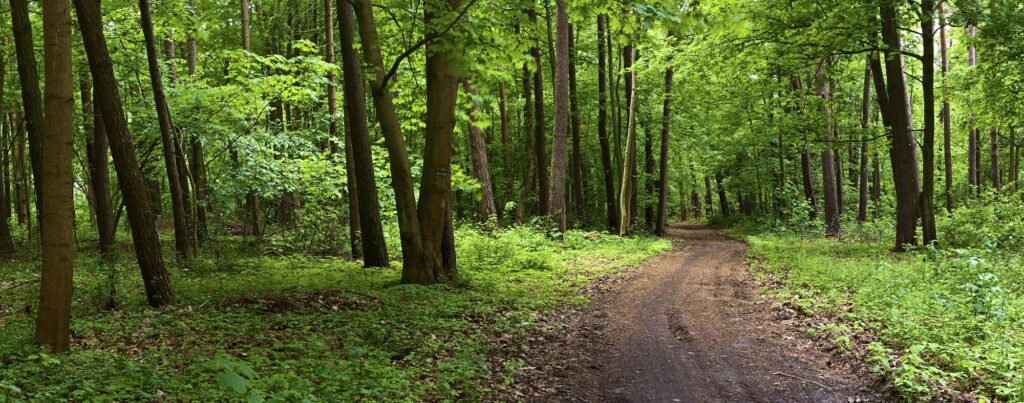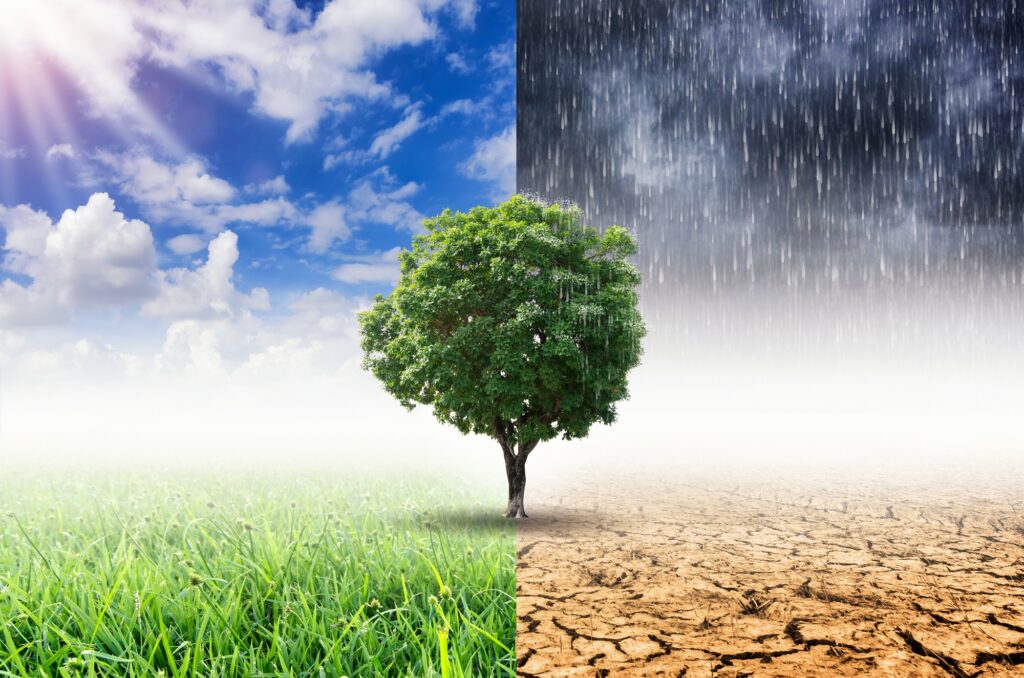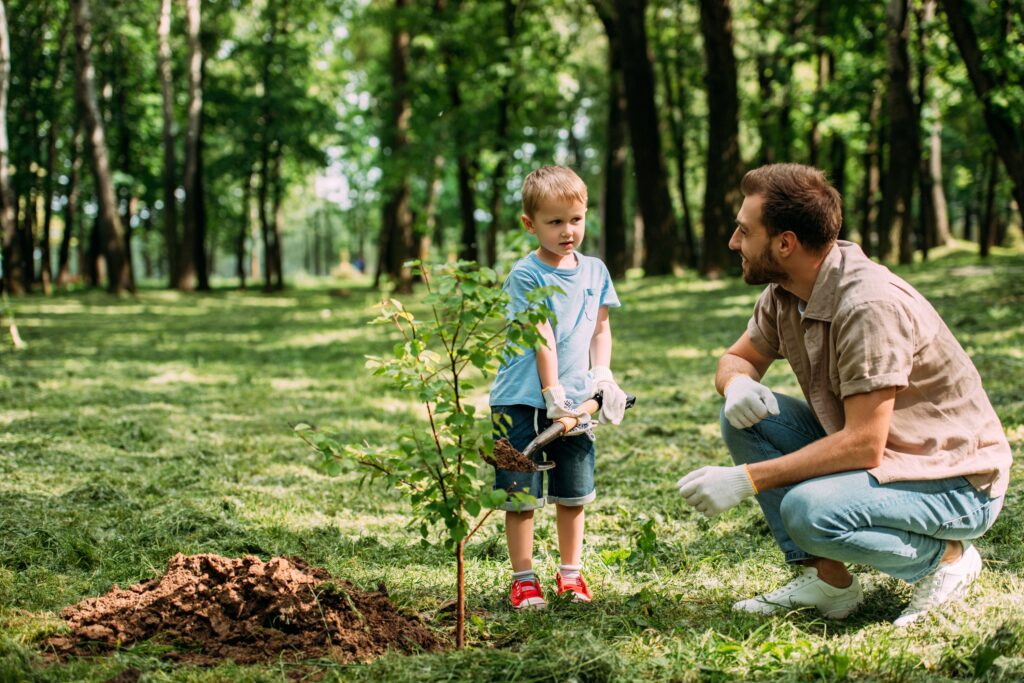
LSRCA has planted the seeds of persistence to manage our watershed’s forests in an era of climate change. We may be able to weather the current storms but we still need to dig deep to better understand the threats our forests face in the future. By acting today, we’re hoping to adapt to climate change tomorrow.
Climate change will affect the types of trees we can plant in years to come.
Trees that grow in Ontario today may not flourish 20 or 30 years from now. Based on findings from our recently released report, “Adapting Forestry Programs for Climate Change”, we are calling for more purposeful planting and forest management. A closer eye and hands-on approach is also needed to maintain our forests.

Climate change projections for our watershed
- Average annual temperatures will increase 2-3oC over historical levels by the 2050s
- Temperatures may increase 5oC by 2100 if current emission levels are not significantly reduced
- Maximum summer temperatures will rise to an average of more than 30oC by 2100, with average winter maximum temperatures increasing to over the freezing mark of 0oC
Extreme weather such as droughts, heat waves, floods, high wind events and ice storms are becoming more frequent, more severe, and are lasting longer.
Emissions of greenhouse gases from industry, vehicles, and other sources are driving global climate change. We are seeing disruptions in historical climate patterns at monitoring stations across the watershed and total annual precipitation is projected to increase, making average winters wetter and summers drier. In the not-so-distant future, increasing temperatures will create conditions that will impact the availability of water. Not a pretty picture.
Climate change affects Lake Simcoe watershed’s forests, wildlife, water and aquatic life.
To adapt to growing development and rising temperature trends, it’s more important than ever for LSRCA to protect and restore the Lake Simcoe watershed’s natural heritage, which is closely linked to water quality and quantity. That’s why the first step is to maintain, expand and improve tree canopy cover.
Research has shown that long-lived native trees such as oaks and maples seem to withstand ice storms better than introduced or nursery-bred species. The changing climate also increases the likelihood that trees will get stressed or die. With that in mind, LSRCA is generating new approaches to planting and managing forests that will help them adapt and survive.
One approach has been to revisit the types of species selected for reforestation and to determine the best timing for those tree plantings – especially considering the watershed now has a growing season that’s one week longer, mostly due to the last spring frost occurring earlier in the year.
The Lake Simcoe Watershed Climate Adaptation Strategy calls for planting climate-resilient tree species.
Planting residient tree species is recommended to improve the success of restoration, afforestation*, urban tree planting, Low Impact Development (LID), and stormwater management plans. One of the strategies is assisted migration or deliberately moving species to new locations that should better match their suitability to a future climate.
LSRCA is exploring three different solutions:moving trees to different regions within a species’ current range, extending a species’ range to adjacent areas, or moving a species to areas beyond where it would naturally spread. All are intended to help trees and vegetation keep pace with climate change.
*Afforestation is the establishment of a forest or stand of trees in an area where there was no previous tree cover.
Trees and forests play a large role in mitigating climate change through sequestration, shading, and providing wildlife habitat.
In the wake of increased development, our goal is to expand and enhance the tree canopy using properly selected trees. The important part to keep in mind, however, is that the trees selected today may not necessarily be the trees that are required in the future. Being diligent and responsive to changing our tree selection will help to restore and protect water quality in our lakes and streams for years to come.
The majority of the Lake Simcoe watershed’s urban forest is on private property.
That makes residents and businesses the most influential stewards of the urban forest. A lack of tree care threatens tree health, and since municipal resources are finite, everyone must share the responsibility of caring for and preserving trees.
While by-laws designed to prevent damage and destruction of trees provides a safety net, it is ultimately a strong collective stewardship ethic that will ensure the growth and long-term health of the urban forest on public and private property.
Everything is connected.
Life on our planet relies on an intricate and fragile web of ecosystems. While humans have technologically advanced over millennia, we seem to be trading the natural order of things for the internet of things. The cascade of catastrophe we’ve created in the name of progress, profit, and convenience is eroding our very life support system – our forests and bodies of water. It’s time to launch one heroic rescue of our natural heritage or face the fallout of climate change.
It’s not all doom and gloom.
Climate change could be the catalyst for positive human change, healthier forests, and the abundant flow – not drip – of clean water.

How can you help? If your property is suitable, LSRCA can help you establish a new forest, connect or enlarge your existing forest, or establish a windbreak. Our team of experts will help you every step of the way from funding and planning to planting and tending your new trees. We may cover 50% to 90% of the costs.
Contact Customer Service:
Phone: 905-895-1281
Toll Free: 1-800-465-0437
Email: info@LSRCA.on.ca
